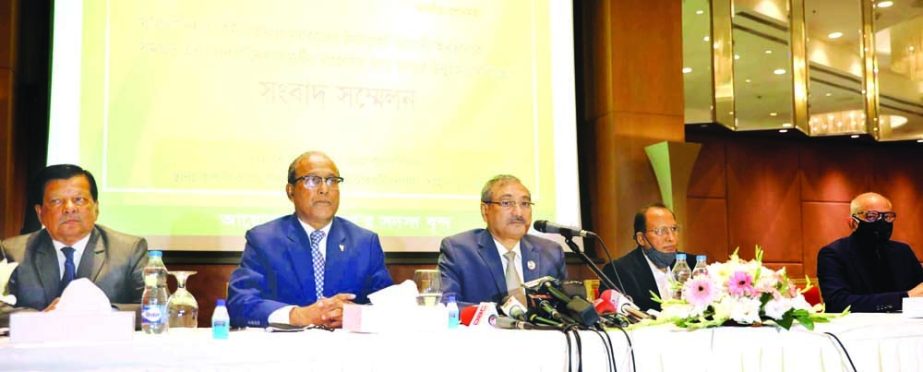
Kamuzzaman Bablu :
The manpower recruiting agencies in Bangladesh and Malaysia have jointly expressed their stance against the 25-agency syndicate for Malaysia-bound workers recruiting and cancellation of the recruiting licenses of those who are lobbying for further syndicate in the market.
At a press conference held at Hotel InterContinental on Thursday, former presidents and secretary generals of Bangladesh Association of International Recruiting Agencies (BAIRA) and leaders of Malaysian recruiters demanded equal opportunity of sending migrants to the destination for all 1,600 legal Bangladeshi recruiting agencies. While addressing the press conference, former BAIRA president Abul Bashar said, “Bangladesh as a sovereign country should also be allowed the same facilities as other 14 countries like Nepal, India, Sri Lanka, Indonesia and Pakistan which can send their workers to Malaysia without any such syndicate.
“All recruiting agencies are of equal qualifications and they have acquired license by providing the same amount of security caution money so they cannot be considered sub-agents of the 25 chosen agencies,” Abul Bashar said, adding that they are going to submit complaints to the government against the owners of those 25 agencies and would demand for cancellation of the recruiting licenses.
He claimed although some 10 agencies and 210 subagents were approved for sending migrants in 2016, in reality, only the 10 agencies could send workers to Malaysia. Moreover, the agencies have been charging two to three times more than the amount of actual fees from the workers who travel from Bangladesh.
“Without serving the purposes of the people, they are trying to make money with syndication,” he said, warning that they would take tougher actions against the decision unless reversed. In response to a query, former BAIRA President Md. Noor Ali, who was also a partner of the 10-agency syndicate, said Bangladeshi origin Malaysian businessman Amin Bin Abdun Nur and his Bangladeshi partner Ruhul Amin Swapan have been working to create the new syndicate.
“In 2016, they were committed to provide chances of business to all agencies. But, they didn’t. They had charged more than actual fees. Due to the reason, Bangladesh couldn’t send workers in security, construction, electronics, plantation and hand gloves sectors as those companies don’t allow charging fees to workers. They pay fees of their workers themselves. But, the syndicate was interested to charge fees from the workers. That’s why, I have left the syndicate,” he added. Joining the event virtually, Malaysian Association of Private Employers General Secretary Sukumar Nair said that the new initiative of syndication or manipulation would destroy the market against and the relations between the two countries. They don’t support the initiative. Former BAIRA secretary generals Ali Haider Chowdhury and Shamim Ahmed Chowdhury Noman and senior vice president Shahadat Hossain and Abdul Hye also spoke in the programme. A debate over syndication in labour recruitment in Malaysia is going around, especially after Dhaka and Kuala Lumpur signed a memorandum of understanding in this regard on December 19 last year. Amid the debate, Malaysian Human Resources Minister M Saravanan sent a letter to Bangladesh Expatriates’ Welfare Minister Imran Ahmad on January 14 mentioning the names of the syndicate of 25 Bangladeshi agents and 250 subagents.
Responding to the letter, Imran Ahmed on January 18 sent a letter to the Malaysian government reiterating the ministry’s stance against any sort of syndication in manpower export to Malaysia, which was lauded by the Bangladeshi recruiters. Recently, the Bangladesh and Malaysia chapters of Transparency International, a Berlin-based global corruption watchdog, have jointly called to release the details of the Memorandum of Understanding (MoU) signed on 19 December 2021.

